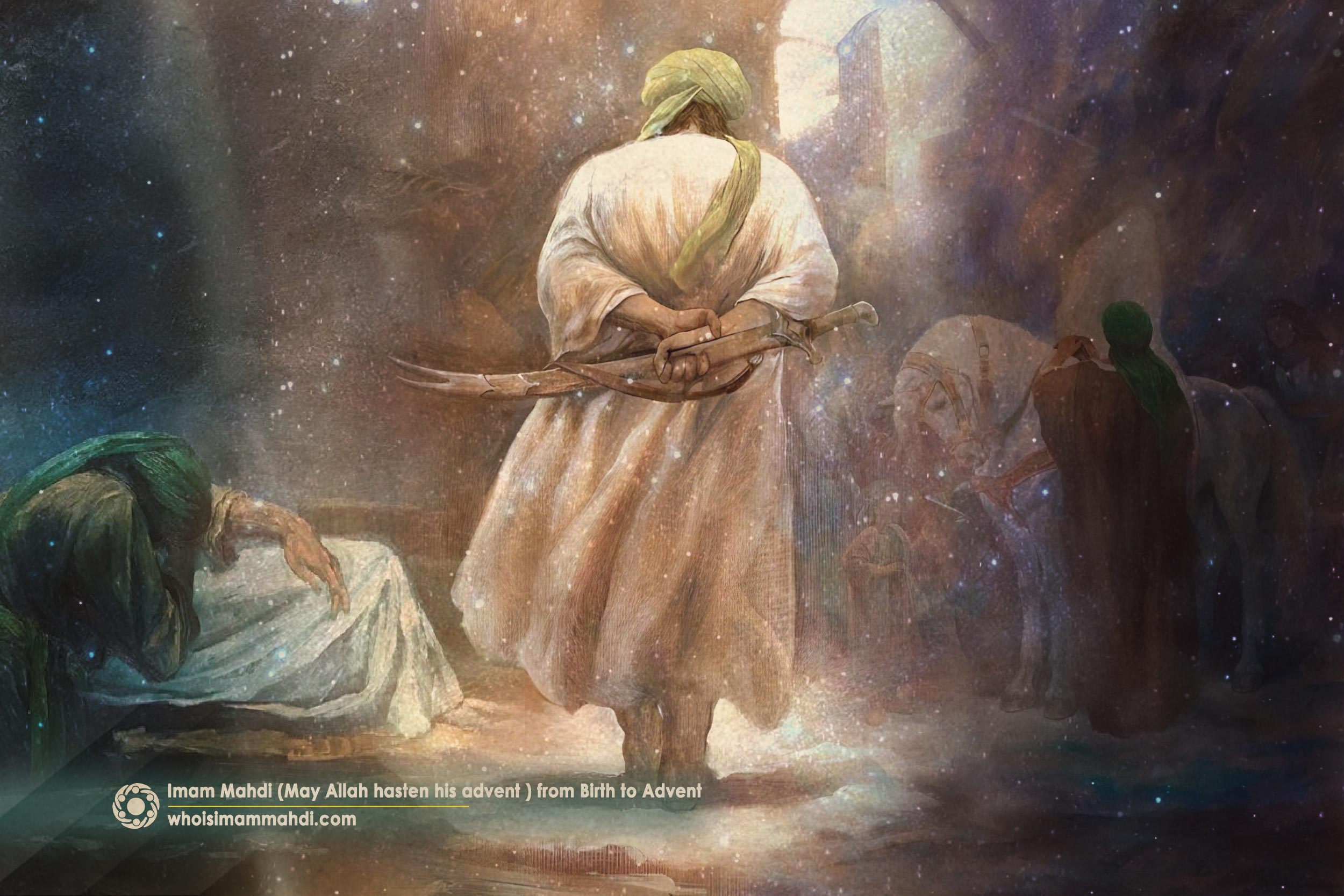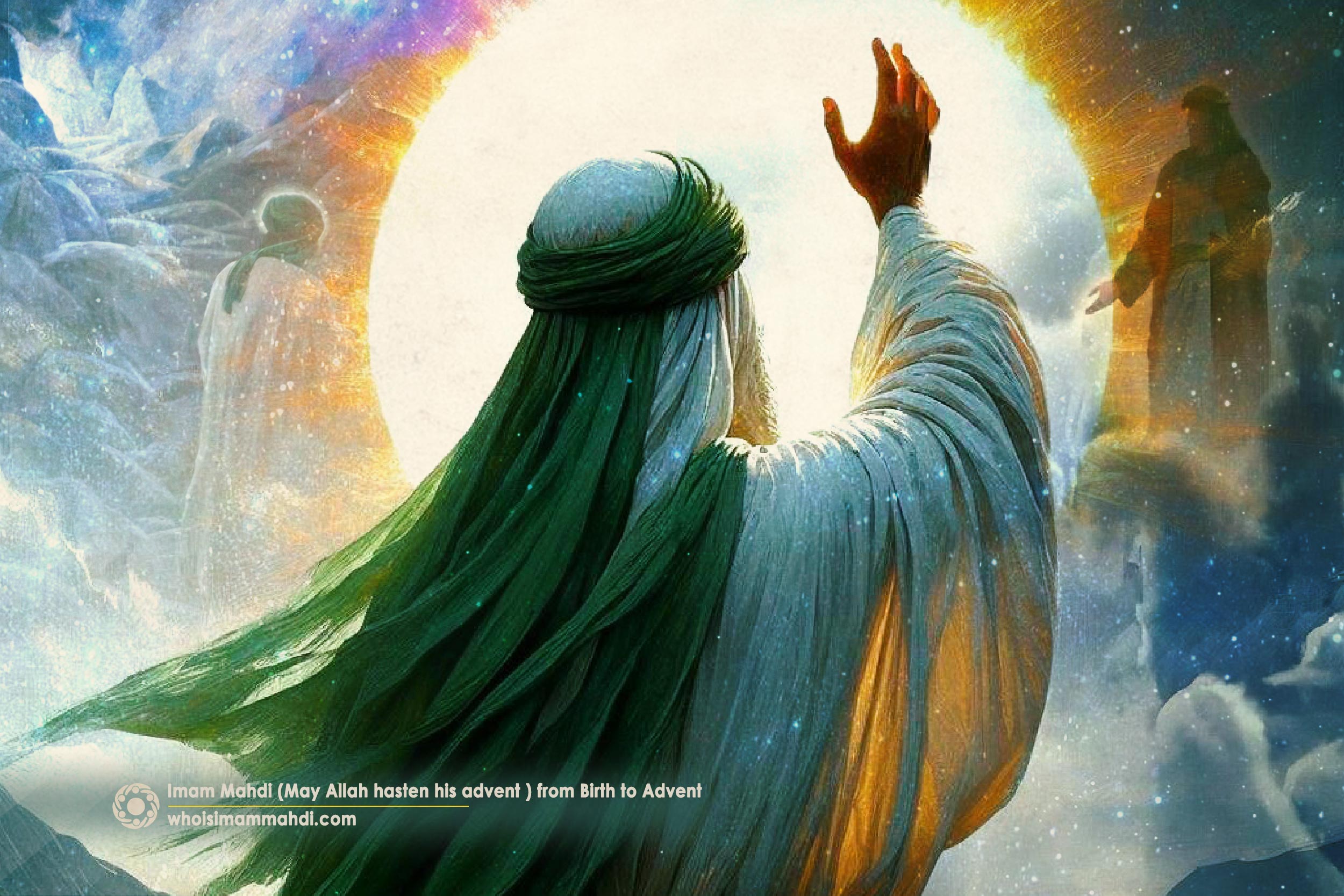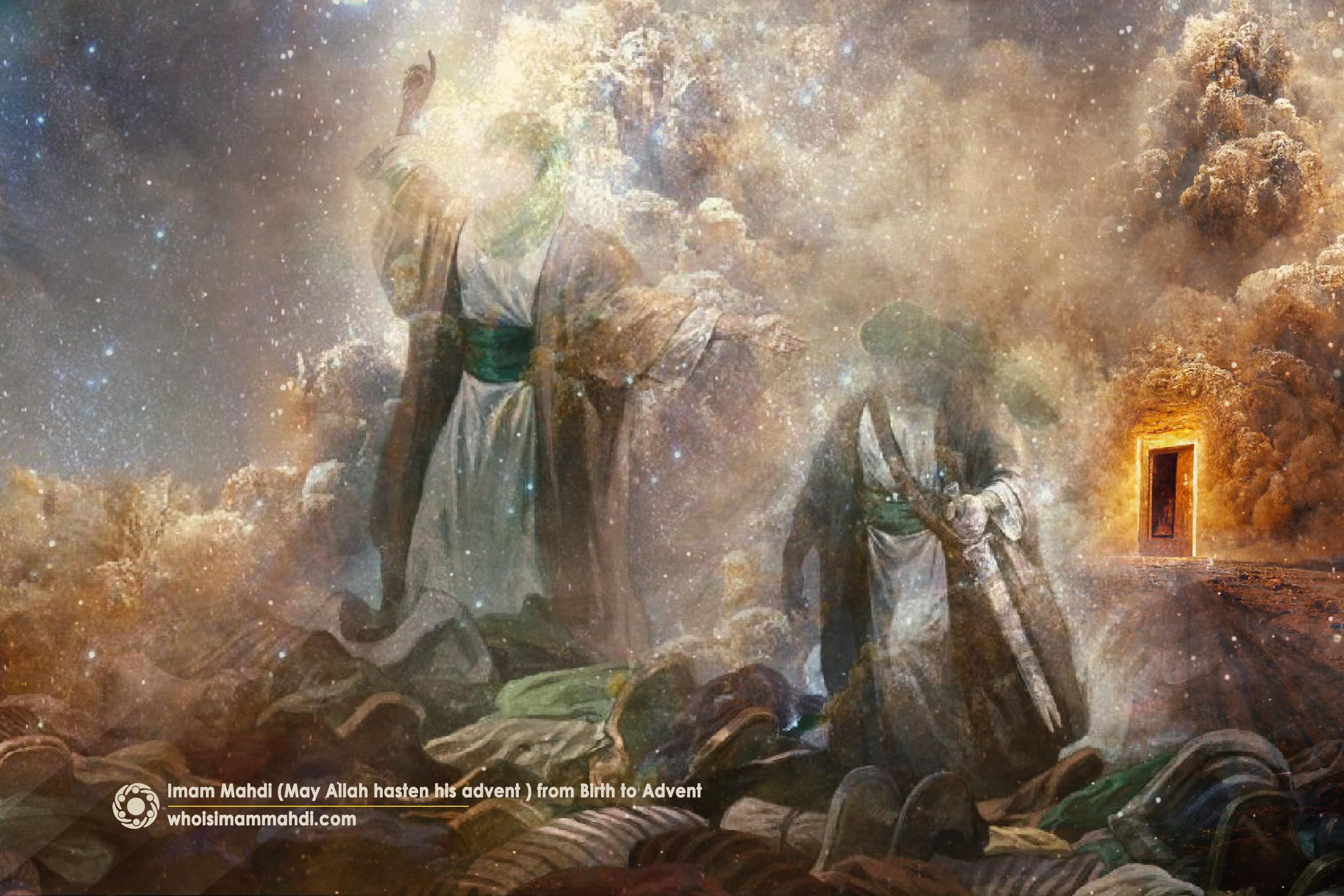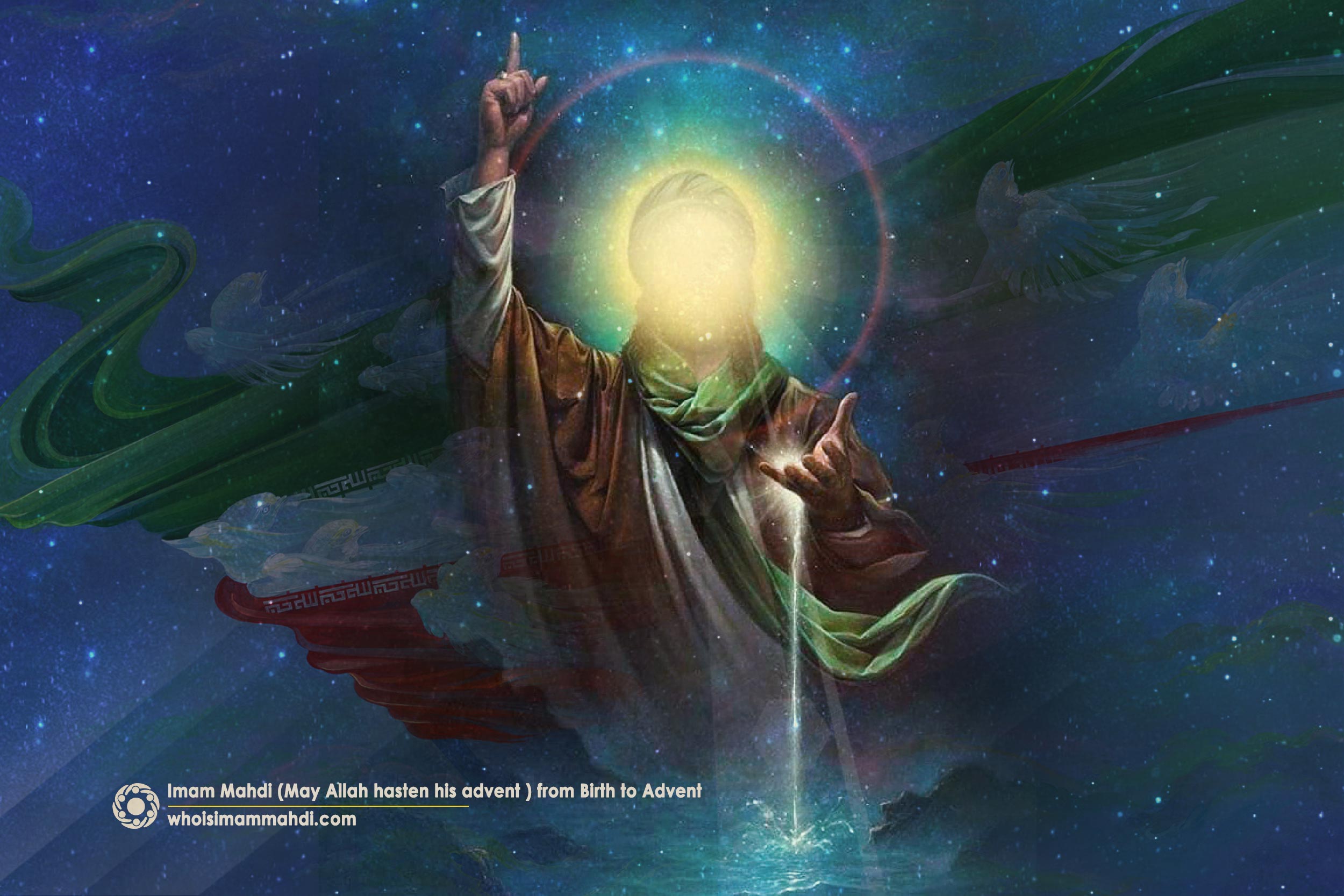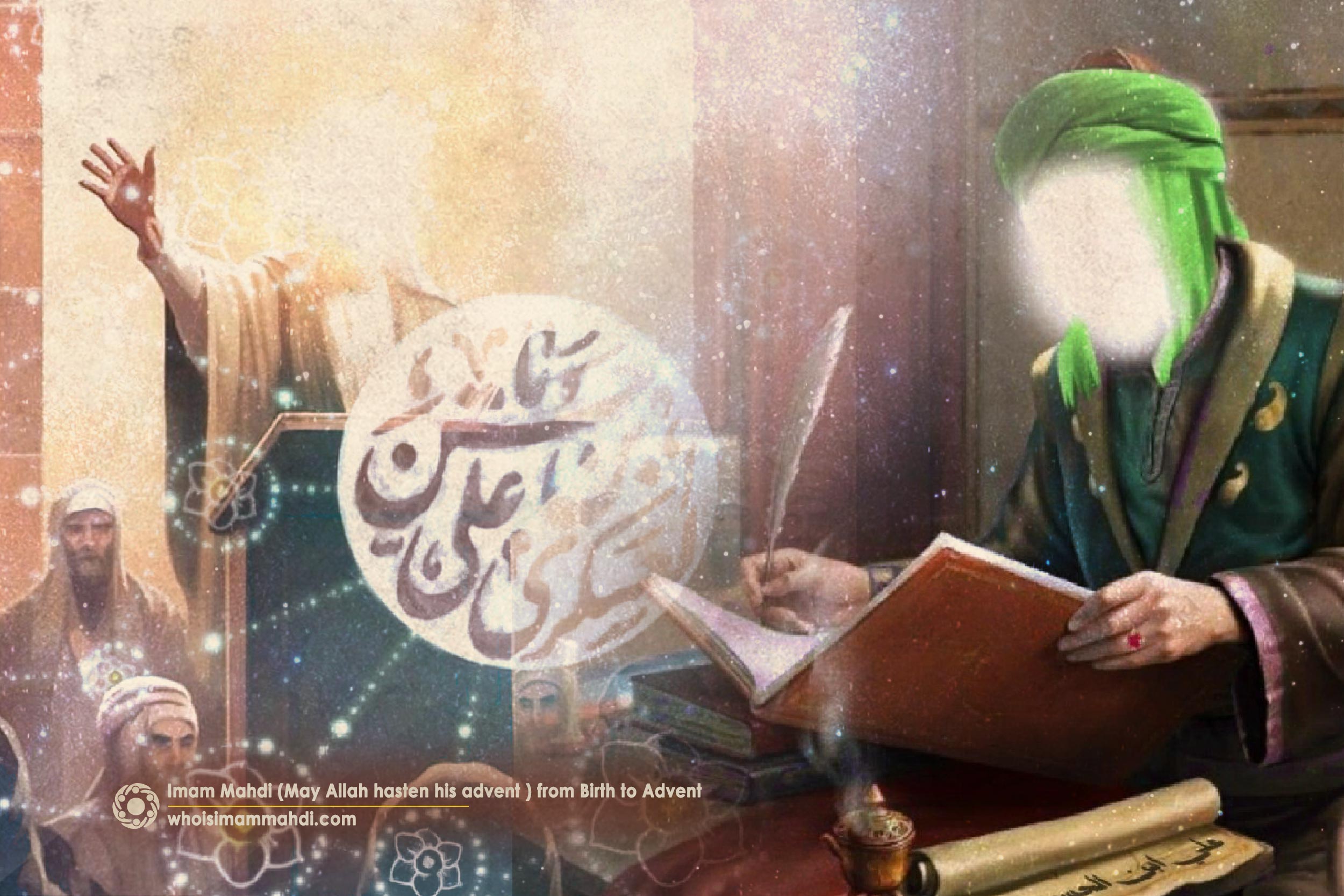How Did Imam Ali (PBUH) Help Prophet Muhammad (PBUH) Establish the Islamic Government?
Who is Imam Ali (PBUH)? What was his role in the establishment of the Islamic government founded by Prophet Muhammad (PBUH)? On what actions had Amir al-Mu’minin (Commander of the Faithful)[1] focused? What was his impact on the material and spiritual bliss of Muslims and even entire humanity?
Definitely it is not easy to speak about someone who has been chosen by God as the successor to the last Prophet, the one who was in charge of interpreting and implementing the most complete Devine Book, that is the Holy Quran, and protecting the religion that Prophet Muhammad (PBUH) established, i.e., Islam. To understand who Imam Ali (PBUH) is, we have no choice but to mention only some of his virtues and characteristics that distinguish him from others. Furthermore, we must also examine his role in the events of the early Islamic period.
Imam Ali (PBUH) was born inside the Kaaba in Mecca on the 13th of Rajab, thirty years after the Year of the Elephant, which was twenty-three years before the Hijrah.[2] His father, Abu Talib, was the uncle of Prophet Muhammad (PBUH) and one of the chiefs of the Quraysh.[3] His mother, Fatimah bint Asad, was the second woman converted to Islam and the first woman who pledged allegiance to Prophet Muhammad (PBUH). The virtues of Amir al-Mu’minin are endless, both in terms of personal characteristics and individual distinctions. Being born miraculously inside the Kaaba is the honor that belongs only to Amir al-Mu’minin; no one before or after him has been born inside the Kaaba. Imam Ali (PBUH) was the only person deemed worthy of marrying Lady Fatima Zahra (PBUH), the daughter of Prophet Muhammad (PBUH). Other eleven Imams and infallible experts are Imam Ali’s children or descendants. He was the first person to believe in Prophet Muhammad (Peace Be Upon Him and His Household). In the event of Mubahala in which Prophet Muhammad (PBUH) and Christian delegations from Najran met for Mubahala in the tenth year of the Hijrah, Imam Ali (PBUH) accompanied Prophet Muhammad (PBUH) while he was considered as the “soul”[4] of the Prophet (Peace Be Upon Him and His Household). The verses of Al-tathir[5] (purification), Al-Itaam,[6] Mawaddah,[7] and Mubahala[8] were revealed with respect to Imam Ali and his family (PBUT). The Hadith of Al-Manzilah establishes a parallel between Imam Ali’s position to Prophet Muhammad and Aaron’s position to Moses. It is worth mentioning that the verse of Ikmal al-Din[9] was revealed during the event of Ghadir Khumm, proclaiming the guardianship of Imam Ali (PBUH). Imam Ali (PBUH) possessed divine knowledge. He was renowned for being knowledgeable and eloquent to the extent that Prophet Muhammad (PBUH) stated, “I am the city of knowledge, and Ali is its gate, thus whoever seeks to enter the city, they must enter through its gate.”[10] Titles like Haydar Al-Karrar,[11] Amir al-Mu’minin, Qasim al-Nar wa al-Jannah,[12] Abu Turab,[13] Sahib al-Liwa,[14] Wali Allah,[15] and Asad Allah[16] have been given to him either by Prophet Muhammad (Peace Be Upon Him and His Household) due to the courage he showed in various situations or derived from some hadiths and Quranic verses about him. These are just a few of Imam Ali’s virtues, providing only a superficial answer to the question of who Imam Ali (PBUH) is. This article aims to provide an answer to the question of who Imam Ali (PBUH) is from a historical point of view, and it defers the examination of Imam Ali’s personality as the infallible Imam and rightful successor to Prophet Muhammad (PBUH) until another opportunity.
Imam Ali’s Lifetime Striving in the Way of God
Imam Ali (PBUH), as the first person who believed in the Messenger of Allah (Peace Be Upon Him and His Household), dedicated fifty-three years out of sixty-three years of his lifetime to promoting and defending the truth of Islam, fighting against oppression and atheism, and realizing Prophet Muhammad’s goal of establishing an Islamic government and building an Islamic community. Imam Ali (PBUH) never left Prophet Muhammad (PBUH) alone nor became indifferent to Islam even for a moment. All the events of the early Islamic period, the hardships of life in the Shi’b Abi Talib, the pressures and tortures inflicted by the polytheists, the migration to Medina and the challenges and dangers faced there, many of the battles fought for the Islamic community during the time of the Prophet (PBUH), the Treaty of Hudaybiya, the Conquest of Khaybar, the Conquest of Mecca, and so on—all of these took place with the presence and sacrifices of Imam Ali (PBUH), which we will discuss further.
The life and activities of Imam Ali (PBUH) can be divided into two main parts. The first part pertains to the time when Prophet Muhammad (Peace Be Upon Him and His Household) was alive. This period took place in Mecca and Medina. During this time, Imam Ali (PBUH) as a loyal companion of Prophet Muhammad (PBUH) did not hesitate to promote Islam. The second part relates to the period following the death of the Prophet (PBUH). This period covers Medina and Kufa. During this time, Imam Ali (PBUH) played his role as the successor to Prophet Muhammad (Peace Be Upon Him and His Household) in a different manner, striving to preserve Islam and implement the principles that the Prophet (PBUH) had established. We have delved into these principles in the article “After Ghadir.”
Ultimately, when Imam Ali (PBUH) was sixty-three years old, after living a life dedicated to striving in the way of God, on the morning of the 19th of Ramadan, he was hit on the head by the poisoned sword of Ibn Muljim al-Muradi, who was one of Kharijites;[17] it took place when Imam was saying his morning prayers and in prostration at the Mosque of Kufa. Following his injury, Imam Ali (PBUH) was martyred on the 21st of Ramadan in 40 AH (661). He was buried in Najaf.
Imam Ali’s Adolescence and Early Youth in Mecca
Definitely, the life of someone who is supposed to take responsibility for guiding the Islamic community is not easy. The life of such a person has many ups and downs, and he is tested in his life many times. Imam Ali (PBUH) was about six years old when Prophet Muhammad (Peace Be Upon Him and His Household) brought him to his house from his father’s house, (Abu Talib’s house). From then on, Imam Ali (PBUH) was nurtured and taught by Prophet Muhammad (PBUH). Imam Ali (PBUH) is the only person who was with the Prophet during the revelation of the Quran. Despite his young age, he was able to recognize the truth and validity of the Messenger of Allah’s words. So he believed in Prophet Muhammad (PBUH) before anyone else. Considering the prevailing social conditions in the Arabian Peninsula and especially Mecca, believing in Prophet Muhammad (PBUH) was not a simple action at that time; it signified having a stance of opposition and declaration of war against oppressive powers and tribal structures.
Three years after Prophet Muhammad was chosen as prophet by God, he invited his relatives to Islam. Imam Ali (PBUH) was the only one among the Prophet’s relatives to pledge allegiance to him, when he was still a teenager. So he was introduced by Prophet Muhammad (PBUH) as his successor and brother. As a result, he, along with the Prophet, faced a wave of mockery and a lot of pressure from those around them. At that time, people who had clung to their false beliefs opposed the Prophet who questioned their beliefs, customs, and traditions. However, from the very beginning, Amir al-Mu’minin (PBUH) had a spirit of selflessness, courage, and dedication. Even at his young age, he defended the Prophet (Peace Be Upon Him and His Household) against the base and immoral individuals who put the Prophet under pressure. Despite his young age, he set aside all his personal desires and sacrificed comfort for working towards realizing the Prophet’s goals.
When Imam Ali (PBUH) was seventeen years old, he, along with Prophet Muhammad (Peace Be Upon Him and His Household) and other Muslims, was exiled to the Shi’b Abi Talib. After enduring hardships in the Shi’b Abi Talib, when the blockade ended, he joined the Prophet (Peace Be Upon Him and His Household) on a journey of propagation to Taif. The Messenger of Allah held no fond memories of that journey. While the people of Taif hurled stones at him, Amir al-Mu’minin (PBUH) defended him. Imam Ali (PBUH) took on an increasingly significant role as Islam developed, his responsibilities expanding to encompass a wider range of activities. The sacrifices Imam Ali (PBUH) made for Islam was to the extent that during the migration of Prophet Muhammad (PBUH) to Medina, when all the efforts of the Prophet (PBUH) over thirteen years to establish an Islamic government were about to bear fruit, Imam Ali (PBUH) risked his life to protect Prophet Muhammad (PBUH) against assassination, sleeping in the Prophet’s bed. This event, known as Laylat al-mabit,[18] exemplifies the peak of Imam Ali’s selflessness and dedication to realizing the goals of Islam and the infallible expert of his time, that is, Prophet Muhammad (PBUH). Furthermore, he saved the Prophet’s life and ensured the continuation of his mission in forming an Islamic society where every Muslim had the opportunity to achieve self-improvement, become similar to the infallible expert, and prepare himself to reach the status of being Allah’s deputy on earth. After the event of Laylat al- mabit, Imam Ali (PBUH) took on the big responsibility to give back to their owners the things entrusted to the Messenger of Allah (PBUH) in Mecca and take some of the Prophet’s family members and relatives with him from Mecca to Medina, among them the Prophet’s daughter (Lady Fatima Zahra) and Fatima bint Asad (his own mother).
Imam Ali’s Faithfulness to Islam and the Messenger of Allah (PBUH) in Medina
When Muslims migrated to Medina and after the establishment of the Islamic government by the Messenger of Allah (Peace Be Upon Him and His Household), Muslims’ responsibility in supporting Islam took on a new form. Having escaped the torment of the polytheists, Muslims in Medina now faced the monumental task of creating an ideal society and the noble role of the righteous led by the Messenger of Allah (Peace Be Upon Him and His Household), while also regulating their desires and ambitions in a different manner.
The migration of Muslims to Medina was a new test of faith for both Muhajirun[19] who had left their wealth and possessions behind in Mecca, and Ansar[20] who hosted their religious brothers and sisters in Medina. In addition to doing their best to be aligned with the laws and standards of Islam that gradually revealed by God to His Prophet, Muslims bore the responsibility for safeguarding the new establishment of Islam because its enemies took any opportunity they could to attack it. In other words, the establishment of an Islamic government provided Muslims with the opportunity to implement divine laws under the leadership of an infallible expert, engage in Jihad al-Nafs,[21] and jihad against their external and internal enemies including disbelievers, hypocrites, and polytheists. During this time, Amir al-Mu’minin (PBUH) excelled in faith compared to other Muslims, just like when he was very young in Mecca. He also stood out among other companions of the Messenger of Allah (Peace Be Upon Him and His Household), for having keen insight, bravery, and selflessness, and being a warrior.
Neither his kinship with the Messenger of Allah (Peace Be Upon Him and His Household) nor getting married to Fatima Zahra (PBUH), the daughter of Prophet Muhammad (PBUH), in 2 AH (622), minimized the steadfastness of Amir al-Mu’minin (PBUH) in pursuing the ideals of Islam and the goals of the Messenger of Allah (Peace Be Upon Him and His Household). Likewise, the spoils of war, acquired by Muslims, did not diminish the simplicity and selflessness of Amir al-Mu’minin (PBUH) and his family. If we want to describe Imam Ali (PBUH), we must say that he was the epitome of a loyal soldier for the Messenger of Allah (Peace Be Upon Him and His Household) and for Islam, dedicating all his efforts to preserving Islam, spreading it, and helping people to reach the status of being the deputy of Allah on earth. Despite having too many responsibilities, nothing diminished Amir al-Mu’minin‘s joy, inner peace, and love, which are the three signs of true faith, and it was evident in his life with his wife, Lady Fatima Zahra (PBUH). They lived a happy life, and as a result, they could nurture children such as Imam Hasan, Imam Hussain, Lady Zainab,[22] and Umm Kulthum (PBUT), each of whom played a significant role in preserving and reviving Islam and realizing its ideals.
The Key Role of Imam Ali (PBUH) in Critical Situations
Imam Ali (PBUH) played a highly significant role in all the military expeditions led by Prophet Muhammad (Peace Be Upon Him and His Household), except for the expedition of Tabuk, where he stayed in Medina at the Prophet’s command. In many of these battles, he was the main standard-bearer of the Islamic army.
Additionally, he participated in some battles that were conducted without the presence of the Prophet and were led by one of the Prophet’s companions. He was really steadfast in battles and defended Prophet Muhammad (Peace Be Upon Him and His Household) in such a way that during the Battle of Khaybar, he was given the title “Karrar Ghayr Farrar” by the Prophet, which means one who attacks the enemy and does not run away. In other words, it implies that Imam Ali (PBUH) was really brave. However, Imam Ali (PBUH) was such a multidimensional person that it is really hard for us to describe him in this article. Nevertheless, to gain a deeper understanding of who Imam Ali (PBUH) is and how he fulfilled his role alongside the Prophet, we will examine his presence in the battles and significant events following the migration from Mecca to Medina.
- The Battle of Badr
The first battle of Muslims against the polytheists of Mecca took place in the month of Ramadan, in the year 2 AH (623 CE) near the wells of Badr, a town in Saudi Arabia. This battle occurred due to the Muslims’ attack on some Meccan caravans heading to Syria and in response to the polytheists’ actions in usurping the possessions of Muslims in Mecca. Muslims won the battle, and some leaders of the polytheists were killed, and some were captured. The number of casualties in Abu Jahl’s army in this battle was reported to be fifty, twenty-one of them being killed by Imam Ali (PBUH). The number of the polytheists captured in this battle was forty-four. In a letter addressed to Muawiya,[23] Imam Ali (PBUH) states that he still possesses the sword with which he killed Utbah, Muawiya’s maternal grandfather, along with Walid ibn Utbah and Hanzalah ibn Abi Sufyan during the Battle of Badr.[24]
- The Battle of Uhud
The battle of Uhud was the second battle that was fought between the polytheists of Mecca and Muslims. This battle took place in the year 3 AH (625 CE), near Mount Uhud. Even though the early phase of the fighting saw the Muslims gaining the initiative, some members of the army of the Messenger of Allah (PBUH) did not heed his advice, and assuming victory was assured, abandoned their positions in the Ravine of Mount Uhud to collect spoils of war left by the fleeing enemy. It was a good opportunity for the polytheists to attack Muslims. After the polytheists gained the upper hand, many of the companions of the Messenger of Allah (PBUH), including the Muhajirun and Ansar, fled the battlefield and left the Prophet alone. Amir al-Mu’minin (PBUH) was one of the few Muslims who did not flee the battlefield; despite suffering seventy wounds, he stood by the Messenger of Allah (PBUH) and defended him. The steadfastness Imam Ali showed in the Battle of Uhud and the sacrifices he made in this battle were to the extent that Gabriel described him in this way, “La Fata illa Ali, La saif illa Zulfiqar,”[25] meaning, “There is no brave man except Ali and there is no sword like Zulfiqar [the sword of Imam Ali].”
- The Battle of Khandaq (Trench)
The third battle between Muslims and their enemies took place in the year 5 AH (627 CE).[26] This battle started with the treachery of the Banu Nadir tribe. In this battle, the Quraysh, along with their other allies from among the polytheists and Jews, set out to eradicate Islam. The enemy force numbered ten thousand.[27] In this battle, Muslims dug a trench around their settlement to confront their enemies. The betrayal of the Jews in Medina, freezing weather, famine, and hunger had put immense pressure on Muslims. During this time, Amr ibn Abd Wudd, one of the greatest warriors in Mecca, crossed the trench with great difficulty and challenged Muslims to duel. After obtaining permission from the Prophet (PBUH), Amir al-Mu’minin offered Amr ibn Abd Wudd a choice: convert to Islam or withdraw from the conflict. When Amr ibn Abd Wudd rejected the suggestion of Amir al-Mu’minin, a great duel took place between them. Ultimately, Imam Ali (PBUH) struck him with a sword that led to his death. When Amr fell, his companions fled and crossed the trench, but Naufal bin Abdulla, caught in the trench after his companions fled, begged for a warrior’s death rather than a humiliating end. Amir al-Mu’minin, descending into the trench, granted his wish with a single blow. According to continuous traditions, Prophet Muhammad stated, “Each blow of Ali on the day of the Battle of Khandaq is better than all the worship acts of Jinn and human beings till Judgment Day.”[28]
In 6 AH (628), Prophet Muhammad (PBUH) along with a group of Muslims in Medina set out on a journey to visit the Kaaba in Mecca and perform the Umrah.[30] However, the polytheists of Mecca blocked their way and prevented them from entering Mecca. In this situation, Muslims pledged allegiance to the Prophet not to abandon him in the case of facing any threat from the polytheists and remain steadfast against their enemies. According to Jabir ibn Abdullah al-Ansari, Imam Ali (PBUH) was the first person to pledge allegiance to the Prophet (PBUH).[31] As a result, the Prophet PBUH) signed a peace treaty with the polytheists for ten years. This treaty is known as the Treaty of Hudaybiya.
- The Battle of Khaybar
In the early days of the year 7 AH (628 CE), Prophet Muhammad (PBUH) ordered an attack on the fortresses of Khaybar. These fortresses belonged to the Jews who had given refuge to the Jews expelled from Medina. They also incited some Arab tribes to fight against Muslims.[32] Due to relying on their tall and strong fortresses located on the peak of mountains, having a large population, an abundance of weapons, and access to a steady water supply, the Jews of Khaybar never ever imagined they would be defeated by Muslims someday. Prophet Muhammad (PBUH) handed over the flag of conquest to some of the Muhajirun and Ansar in the hope that they could conquer the enemy. However, they were unable to make any progress in the battle. So Prophet Muhammad said, “Tomorrow I will hand over the flag to the one whom God and His Messenger love, and through whom God will give to the Muslims victory, and he is not a coward who flees the battlefield.” The next morning, the flag was given to Imam Ali (PBUH). In a single combat, Imam Ali (PBUH) killed Marhab ibn al-Harith, the chief of the Fort of Khaybar. So the strongest fortress of Khaybar was conquered by Imam Ali (PBUH).
- The Conquest of Mecca
After the polytheists broke the peace Treaty of Hudaybiya they had signed with Muslims, Prophet Muhammad (PBUH) set out from Medina for Mecca to conquer this city at the beginning[33] of Ramadan in year 8 AH (December 629 or January 630 CE). The Prophet (PBUH) handed over the flag of conquest to Imam Ali (PBUH). After the conquest of Mecca, at the suggestion of the Prophet (PBUH), Imam Ali (PBUH) climbed on the Prophet’s shoulders and threw down the idols of Kaaba.[34] In this way, they abolished polytheism and idol worship in Mecca.
- The Battle of Hunayn
After the conquest of Mecca, the chiefs of the tribes of Hawazin and Thaqif, fearing that Prophet Muhammad (PBUH) would wage war on their tribes, took the initiative and launched an attack on Muslims in the region of Hunayn. At the beginning of the battle, due to a surprise attack by the polytheists and the presence of newly converted Meccan Muslims, the army of Islam lost morale. Even the life of Prophet Muhammad (PBUH) was in danger. The polytheists of the tribes of Hawazin and Thaqif had waited in ambush in the ravines. They launched a sudden attack. People around Prophet Muhammad (PBUH) scattered away and left him alone. According to some hadiths, only four people stood by the Prophet (PBUH), one of whom was Imam Ali (PBUH). In this battle, Imam Ali (PBUH) was the bravest warrior. He attacked the standard-bearer of the enemy and killed him. Following this event, the polytheists dispersed and fled the battlefield. Ultimately, this event led the army of Islam to victory.
The Battle of Tabuk was the only battle in which Imam Ali (PBUH) did not participate at the command of Prophet Muhammad (PBUH). He stayed in Medina to thwart any potential plots of the hypocrites during the absence of the Messenger of Allah (PBUH). During this time, Imam Ali (PBUH) had been assigned to another mission. He had to proclaim on the Eid al-Adha in 9 AH (631 CE) that Allah and his Messenger disowned the polytheists.[35] This mission must be fulfilled by Prophet Muhammad (PBUH) or one of his Household members at the command of God. In the last year of Prophet Muhammad’s life, 10 AH (632), Imam Ali (PBUH) was sent to Yemen at the command of the Prophet (PBUH). His mission was to invite people to Islam, teach them Ahkam (Islamic rulings) and clarify to them what Halal (permissible) and Haram (forbidden) were.[36] During this journey, Imam Ali (PBUH) introduced Islam peacefully to the large tribes of Yemen, such as Hamdan, and as a result, they embraced Islam. So other tribes followed suit and converted to Islam as well. Among other activities, Imam Ali (PBUH) also settled dispute among Yemeni tribes and collected zakat[37] from them. This journey laid the groundwork for Yemeni people’s affinity towards the Ah al-Bayt, making them ready to collaborate on establishing the Noble Rule of the Righteous in the future.
The Importance of the Presence of Imam Ali (PBUH) and His Companionship with the Prophet (PBUH)
By examining the military expeditions led by Prophet Muhammad (PBUH), we gained insight into the key role of Imam Ali (PBUH) in these expeditions. It is natural that an infallible expert can implement the religion and help people reach the goal of creation- becoming similar to Allah- only when some individuals pave the way for establishing a government which implements God’s commands. As we know, the Messenger of Allah (PBUH), to a great extent, was deprived of such opportunities in Mecca before establishing his government in Medina. To precisely know who Imam Ali (PBUH) is and to understand the role he played in realizing the goals of Islam, it is crucial that we pay close attention to the fact that Imam Ali’s absence from any military expedition or crucial situation was a significant loss for Islam. Even the Islamic government that had been established painstakingly by the Prophet might have been put in danger or be completely destroyed in Imam Ali’s absence.
So to highlight the importance of this question that who Imam Ali is, it is enough to note that he was a figure who— with his powerful, unwavering, courageous, and timely presence alongside the infallible expert of his time—the Prophet (PBUH)— helped the Prophet establish the Islamic government and create an ideal society. He stood side-by-side with the Prophet to strengthen the Muslim community and guide them towards God’s ultimate goal. After his Farewell Hajj, the Prophet designated Imam Ali (PBUH) as his successor at Ghadir Khumm, fulfilling God’s command. We have addressed this event in the article “Ghadir Khumm: Its History and Timeless Legacy Through the Ages.”
Conclusion
In this article, we examined the question of who Imam Ali (PBUH) is. We noted that while the virtues of Amir al-Mu’minin (PBUH) are so numerous that they cannot be fully covered in this article, analyzing his role in the events of early Islam and the battles of the Prophet helps clarify who Imam Ali (PBUH) is. We discussed the efforts and sacrifices he made to establish and preserve an Islamic government under the guidance of an infallible leader, as well as his historical role alongside the Prophet of Islam.
[1] . The title Amir al-Mu’minin translates directly to “ruler or governor of Muslim believers.” Shia Muslims believe this title is specifically reserved for Imam Ali (PBUH), who they believe was given this title by the Prophet Muhammad (PBUH) himself. They do not believe it is appropriate to use this title for any of the Rashidun Caliphs or any of the other eleven Imams. However, other Muslims often use this title with a political and religious meaning.
[2]. Prophet Muhammad’s migration from Mecca to Medina in 622 CE
[3] . The dominant tribe in Mecca when Prophet Muhammad was born
[4] . Quran, 3:61
[5] . Quran, 33:33
[6] . Quran, 76:8
[7]. Quran, 42:23
[8] . Quran, 3:61
[9] . Quran, 5:3
[10] . Al-Hakim al-Nishapuri, Al-Mustadrak ala al-Sahihayn, 1990, vol. 3, p.126.
[11] . Attacking Lion
[12]. the divider of Hell and Heaven
[13]. Father of Soil
[14]. Standard-Bearer
[15] . Guardian chosen by Allah
[16] . Lion of God
[17]. The Kharijites emerged in the first century Islam, during a time of great turmoil after Prophet Muhammad’s passing. They objected to Imam Ali’s decision after he agreed to arbitration with Muawiyah to decide the succession to the Caliphate following the Battle of Siffin (657 CE). This radical stance led them to rebel against Imam Ali (PBUH), ultimately culminating in his assassination. For centuries, Kharijites continued to challenge the established authority of the Caliphate. They believed that choosing a leader was a matter of divine judgement, and therefore opposed any form of arbitration.
[18] . Quran 2:207 praises the selflessness of Imam Ali (PBUH).
[19]. The Muhajirun were the early converts to Islam, including close advisors and family of the Prophet Muhammad (PBUH). They migrated from Mecca to Medina in an event known as the Hijra.
[20]. The Ansar, meaning ‘The Helpers’ in Arabic, were the residents of Medina who opened their homes to Prophet Muhammad (PBUH) and his followers, the Muhajirun, when they migrated from Mecca during the Hijra.
[21] . The struggle against evil ideas, desires, and powers of lust, anger, and insatiable imagination, placing all of them under the dictates of reason and faith in obedience to God’s commands
[22] . The heroine of Karbala
[23] . Founder of the Ummayyad dynasty of caliphs. He fought against Imam Ali (PBUH), seized Egypt, and assumed the caliphate after Imam Ali’s assassination
[24] . Sharif Razi, Nahjul Balagha Part 2, Letters and sayings, letter 64.
[25] . Muhammad Kulayni, Al-Kafi, vol. 8, p.110.
[26] . Ibn Hisham, Al-Sirah Al-Nabawiyyah. Dar Al Maarifah, vol. 3, p.226.
[27] . Ibid, vol.2, p.230.
[28] . Ibn Abi Jumhur al-Ahsa’I, Awali al-Allali, vol. 4, p.86.
[29] . Quran, 48:18.
[30] . Al-Tabari, Tarikh al-Tabari, vol. 2, pp. 620-621.
[31] . Muhammad Baqir Majlisi, Bihar al-Anwar, vol. 38, p.211.
[32] . Ibn Hisham, Al-Sirah Al-Nabawiyyah. Dar Al Maarifah, vol. 2, p. 328.
[33] . For more information, see Murtadha Mutahhari, The Unschooled Prophet. Islamic Propagation Organization, 1991, pp. 11-14.
[34] . Ibn Sharashub, al-Manaqib, vol. 2, p.135.
[35] . Quran, 9:3
[36] . Ibn Sharashub, Al-Manaqib, vol. 2, p.135.
[37]. In Islam, Zakat, meaning ‘that which purifies,’ is a form of alms giving which is more than just charity; it is a religious duty, ranked second only to prayer in importance. Collected by the Muslim community, it is a powerful act of purification and a reminder of our shared responsibility to care for the less fortunate. The Quran mentions eight heads of Zakat.

